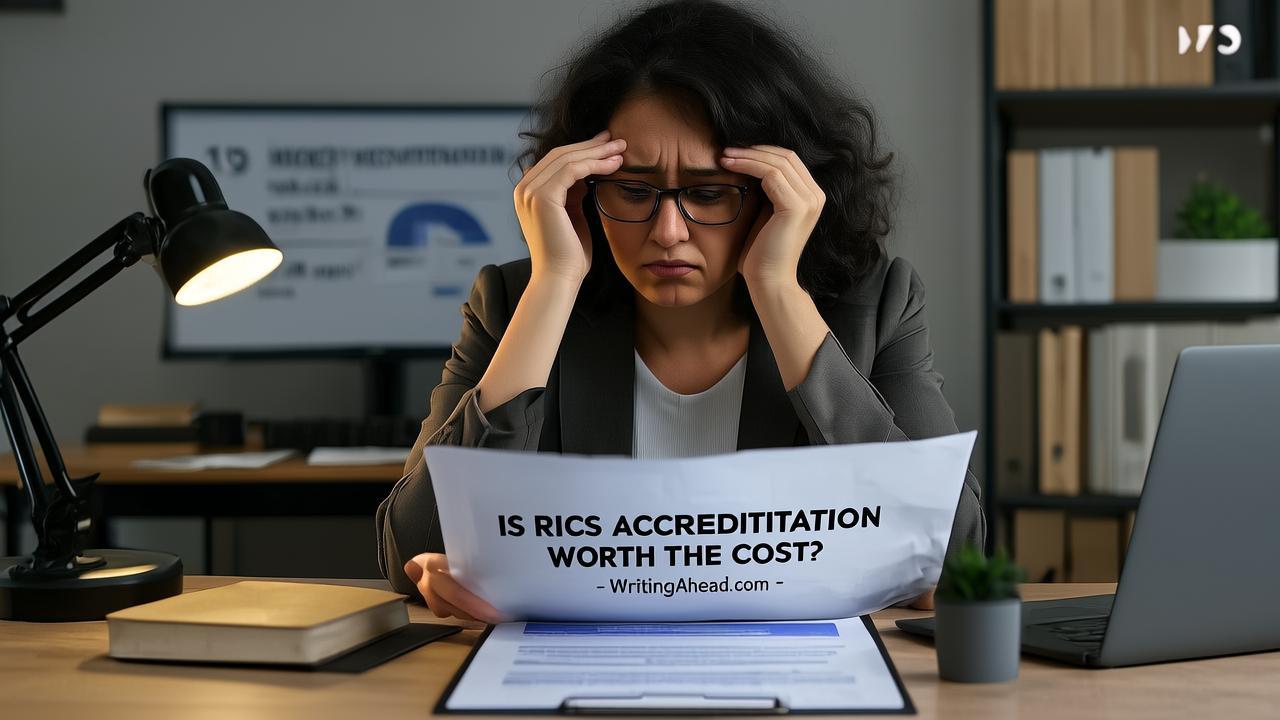Why RICS Chartered Status Is More Than Just a Title

If you're working in construction, surveying, or the property sector, you’ve probably come across those three powerful letters — MRICS. For some, it looks like just a fancy title. But if you've ever considered going for RICS Membership, let me tell you — it’s way more than just something to stick on your email signature.
I went through the RICS Assessment process myself, and trust me, I learned a lot more than how to answer competency questions. In this article, I’ll break down why becoming a Chartered Member of the Royal Institution of Chartered Surveyors (RICS) is one of the best investments you can make in your professional life.
First Off — What Exactly Is RICS Membership?
RICS Membership is your gateway to being recognised as a qualified, ethical, and competent professional in the built environment industry. It’s awarded by the Royal Institution of Chartered Surveyors, a globally respected organisation based in the UK but known all over the world.
There are three levels:
-
AssocRICS (Associate Member)
-
MRICS (Chartered Member – the one everyone talks about)
-
FRICS (Fellow – for senior professionals with significant achievements)
Most people aim for MRICS, and for good reason.
Why Do People Chase RICS Chartered Status?
Let’s be honest. The RICS Assessment (commonly known as the APC) takes time, effort, and serious focus. So why do thousands of professionals go through it each year?
Here’s why:
1. It Proves You Know Your Stuff
The construction and property sectors are full of job titles and flashy CVs. But RICS Membership gives you something solid — it’s a stamp that says you’ve been assessed, you’ve got the right knowledge, and you can be trusted to do things by the book.
It’s especially helpful if you’re working in commercial, project management, or quantity surveying roles. Employers see MRICS and immediately know you meet high industry standards.
2. It Opens Global Doors
One of the biggest perks of RICS status? It’s recognised worldwide.
Whether you’re working in Manchester, Melbourne, or Riyadh, the RICS badge carries serious weight. Many international companies list “MRICS required” in their job ads, especially in places like the Middle East, Australia, or Asia.
For example, I had a former colleague who moved to Saudi Arabia after passing his RICS Assessment. Within weeks, he was offered a senior role on a major infrastructure project — and yes, RICS was the deciding factor.
3. Better Pay and Career Opportunities
Let’s not pretend money doesn’t matter. In most salary surveys, Chartered Surveyors consistently earn £10k–£20k more than their non-chartered peers.
Having RICS Membership on your CV shows you’re not just experienced — you’re qualified, certified, and capable of taking on bigger responsibilities. It often leads to faster promotions, better roles, and job security.
4. It Boosts Your Confidence (and Reputation)
This is something people don’t talk about enough.
Going through the RICS Assessment isn’t just about ticking boxes. You actually grow — professionally and personally. You learn how to:
-
Communicate your decisions clearly
-
Work ethically
-
Lead projects with confidence
-
Defend your judgment in high-stakes environments
Once you’ve passed, you feel it. And others notice it too — clients, colleagues, even competitors.
5. You Become Part of a Respected Network
Joining RICS means you’re now part of a professional family. You’ll have access to:
-
Events and networking meetups
-
Ongoing learning through CPD
-
Global updates on industry trends and standards
These connections can be useful whether you're looking for a mentor, a new job, or insights into a new market.
What Is the RICS Assessment Like?
If you're thinking of applying for RICS Membership, you'll need to go through the Assessment of Professional Competence (APC).
The APC involves:
-
A structured training period (usually 12–24 months)
-
Written submission (experience record + case study)
-
A final interview with experienced RICS assessors
The process is challenging — no lie — but it’s also incredibly rewarding. And if you're not sure how to get started, there are plenty of resources, mentors, and support groups out there. Some even use RICS-approved training providers to guide them step by step.
Common Misconceptions About RICS
Let’s clear up a few myths:
“It’s only for surveyors.”
Not true. RICS welcomes professionals in project management, construction, real estate, infrastructure, and facilities management.
“I don’t need it if I’ve got years of experience.”
Experience is great, but RICS formalises that experience into a recognised, transferable qualification.
“It’s too hard.”
It’s not easy, but it’s manageable with the right preparation — and it’s definitely worth it.
News Insight: More Employers Are Making MRICS a Requirement
According to a 2024 report by RICS UK, over 65% of senior-level surveying roles now require MRICS or are giving preference to candidates with chartered status.
This means the bar is rising — and if you want to stay competitive, RICS Membership is no longer optional. It’s essential.
Final Thoughts: More Than Just a Title
At the end of the day, RICS Chartered Status isn’t about showing off. It’s about being recognised for what you’ve worked hard to learn and achieve.
Whether you're aiming for a pay rise, planning to move abroad, or just want that added confidence in your role — RICS can open doors you didn’t even realise were locked.
So if you’ve been thinking about it, stop waiting. Start your journey today, and remember — it's more than just a title. It’s your next level.
Thinking About Going for RICS Membership?
Start by checking if you're eligible and exploring the right pathway. And if you need help with your RICS Assessment, there are mentors, coaching programs, and support communities to help you succeed.
- Art
- Causes
- Crafts
- Dance
- Drinks
- Film
- Fitness
- Food
- Games
- Gardening
- Health
- Home
- Literature
- Music
- Networking
- Other
- Party
- Religion
- Shopping
- Sports
- Theater
- Wellness


